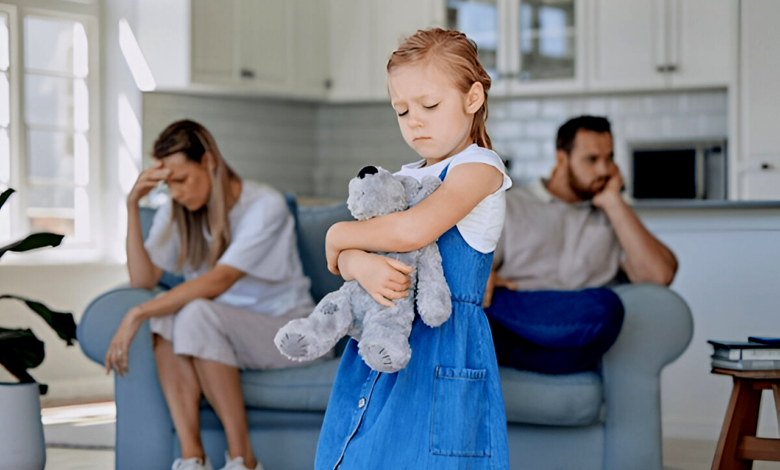Child Custody Laws in Georgia What Divorcing Parents Need to Know
Child custody laws in Georgia determine parental rights Learn how courts decide custody visitation and support for divorcing parents Get expert guidance.

Child custody laws in Georgia can be complex and emotionally challenging for parents going through a divorce or separation. Understanding how courts determine custody arrangements is crucial for protecting both parental rights and the best interests of the child. Georgia family courts prioritize stability, safety, and the child’s overall well-being when making custody decisions, rather than automatically favoring one parent over the other. Whether parents are negotiating an agreement through mediation or facing a contested court battle, knowing the legal standards and key factors that influence custody rulings can help families navigate this difficult process with greater clarity and confidence.
In Georgia, custody decisions are guided by the principle of what serves the child’s best interests, which includes considerations such as each parent’s ability to provide care, the child’s relationship with both parents, and their adjustment to home and school life. This article will explore the different types of custody, how courts evaluate parenting roles, and what divorcing parents should know to prepare for custody proceedings. By understanding these laws, parents can make informed decisions that promote their child’s long-term stability and happiness, whether through cooperative parenting plans or court-ordered arrangements.
Child Custody Laws in Georgia
Understanding Child Custody Laws in Georgia
When parents divorce or separate, one of the most pressing concerns is child custody. Georgia, like other states, follows specific legal guidelines to determine custody arrangements. The primary consideration is always the best interests of the child, but several factors influence how courts allocate custody rights.
Legal Custody Defined
Legal custody grants a parent the authority to make major life decisions for the child, including choices about education (school selection, tutoring), healthcare (medical treatments, insurance), religious upbringing, and extracurricular activities. Even when parents share joint legal custody, they must consult each other on these significant matters.
Physical Custody Explained
Physical custody determines where the child primarily resides and which parent handles day-to-day care. This includes routine matters like meals, bedtime, and daily activities. The parent with primary physical custody typically maintains the child’s main residence, while the other parent usually has scheduled visitation or parenting time.
Sole Custody Arrangements
In sole custody situations, one parent retains either exclusive legal custody, exclusive physical custody, or both. This is typically granted when the other parent is deemed unfit due to factors like abuse, neglect, substance abuse, or incarceration. The non-custodial parent may still receive supervised visitation rights in some cases.
Joint Custody Variations
Georgia recognizes two forms of joint custody Joint legal custody Both parents share decision-making rights. Joint physical custody The child spends substantial (though not necessarily equal) time with both parents
Even in joint physical custody, courts often designate a primary residential parent for school district purposes and stability.
Primary Physical Custodian Role
When joint custody is awarded, the primary physical custodian maintains the child’s main residence for school and medical records, while the other parent has a detailed visitation schedule. This designation affects child support calculations and helps maintain stability in the child’s education and community life, even when parenting time is nearly equal.
How Georgia Courts Determine Custody
Unlike some states, Georgia does not automatically favor mothers over fathers in custody disputes. Instead, courts evaluate multiple factors, including The emotional bond between the child and each parent A strong, healthy relationship with both parents is encouraged. Each parent’s ability to provide stability Courts look at living conditions, financial stability, and the ability to meet the child’s needs.
The child’s adjustment to home, school, and community Disrupting a child’s routine is avoided unless necessary. The mental and physical health of each parent A parent’s capacity to care for the child is closely examined. Evidence of abuse or neglect Any history of domestic violence or substance abuse can severely impact custody decisions. The child’s preference (if they are of sufficient age and maturity) Typically, children aged 14 or older may express their preference, though the court is not bound by it.
Visitation Rights for Non-Custodial Parents
Even if one parent is granted sole physical custody, the other parent usually receives visitation rights (also called parenting time). Georgia encourages frequent and Child Custody contact with both parents, as long as it is in the child’s best interest. Visitation schedules can be flexible or structured, depending on the parents’ agreement or court order. Common arrangements include weekend visits, alternating holidays, and extended summer breaks. If a parent poses a risk to the child, supervised visitation may be ordered.
Modifying Custody Orders
Custody arrangements are not always permanent. If circumstances change significantly such as Child Custody relocating, remarrying, or becoming unfit either parent can request a modification. However, the parent seeking the change must prove that the modification serves the child’s best interests.
The Role of Mediation in Custody Disputes
Georgia courts often require parents to attempt mediation before going to trial. Mediation is a voluntary process where a neutral third party helps parents negotiate a Child Custody agreement. It is generally less adversarial, faster, and more cost-effective than litigation. Successful mediation can lead to a parenting plan that outlines custody, visitation, and decision-making responsibilities.
Enforcing Custody Orders
If a parent violates a custody order for example, by denying visitation the Child Custody can file a motion for contempt. Courts take such violations seriously and may impose penalties, including fines, make-up visitation, or even jail time in extreme cases. Successful mediation can lead to a Child Custody that outlines custody, visitation, and decision-making responsibilities. Georgia encourages frequent and continuing contact with both parents, as long as it is in the child’s best interest.
Read More: Work-Life Balance: Making Health a Priority in a Busy World
Conclusion
Child custody laws in Georgia are designed to protect the best interests of children while ensuring both parents have the opportunity to maintain meaningful relationships with them. While divorce can be emotionally challenging, understanding these laws helps parents navigate custody decisions with greater clarity and purpose. By focusing on factors like stability, parental involvement, and Child Custody well-being, Georgia courts aim to create arrangements that support healthy development. Whether through mediation or litigation, parents who prioritize their child’s needs over personal conflicts are more likely to achieve sustainable, positive outcomes.
Ultimately, cooperation and flexibility between parents lead to the most successful custody resolutions. While child custody laws in Georgia provide a legal framework, the most enduring solutions often come from parents working together to create balanced parenting plans. By staying informed, seeking professional guidance when needed, and keeping the child’s best interests at heart, divorcing parents can establish custody arrangements that foster stability, security, and continued loving relationships for their children long after the divorce is finalized.
FAQs
Does Georgia favor mothers in custody cases?
No, Georgia courts evaluate both parents equally, Child Custody on the child’s best interests rather than gender.
At what age can a child choose which parent to live with?
Children aged 14 or older can express a preference, but the judge is not required to follow it.
Can custody orders be modified?
Yes, if a significant change in circumstances affects the child’s welfare, a parent can request a modification.
What if a parent denies court-ordered visitation?
The other parent can file a contempt motion, which may result in legal consequences.
Is mediation mandatory in Georgia custody cases?
In most cases, yes parents must attempt mediation before proceeding to trial.











